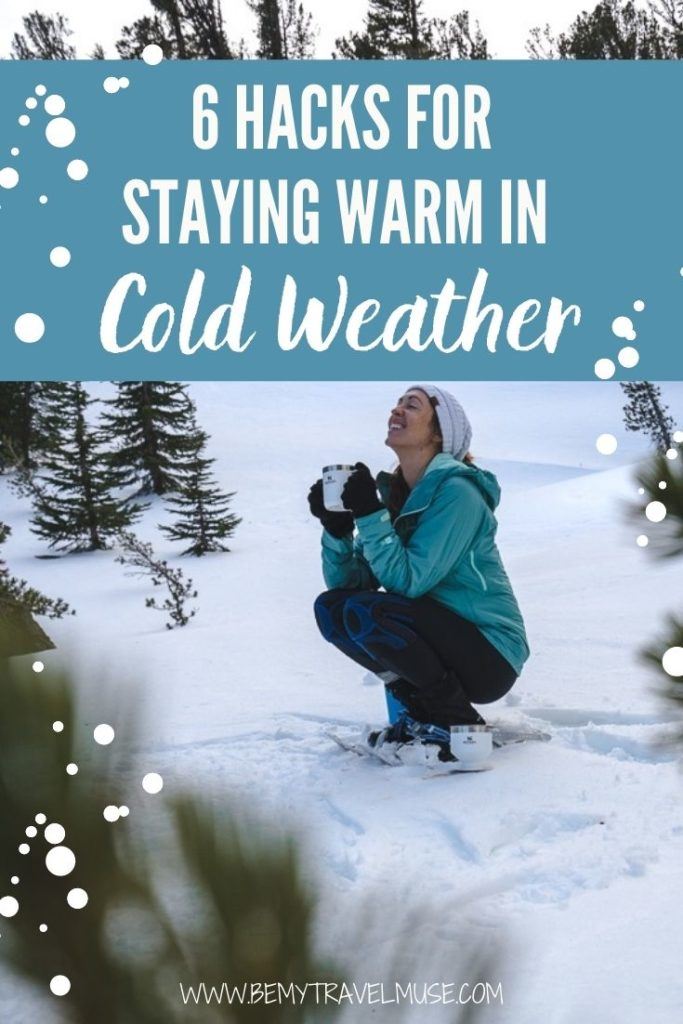
This sponsored post features products from Stanley, with genuine reviews after testing each product:
When the winter chill comes this California girl gets excited. It feels like after a lifetime of living without snow, I’ve got lost time to make up for.
I used to think winter would be so painfully cold, but even up until -30, I’ve learned that it’s more down to outfit choices and having the right gear with you to keep you (and your food and drinks!) warm. Here are the hacks I’ve learned from Tahoe to the arctic:
Bring Hot Food and Beverages
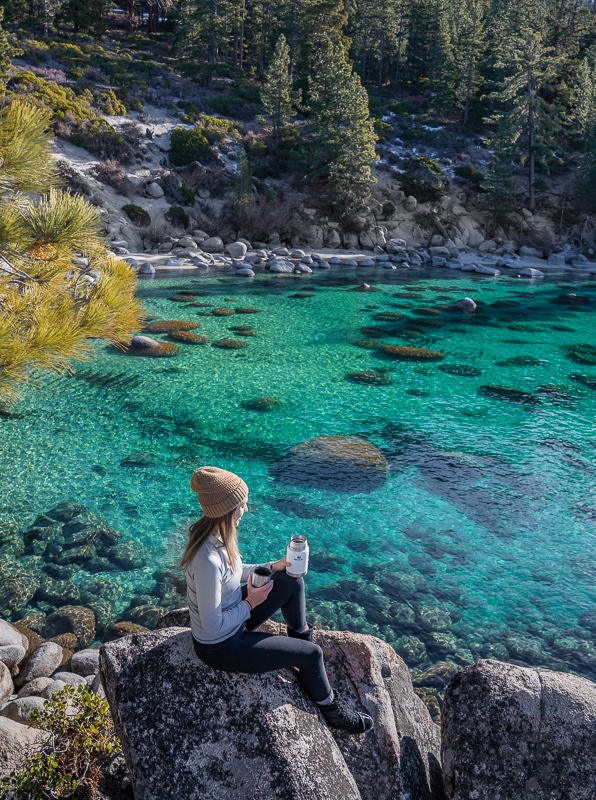
Few things are more satisfying than a warm sip of coffee or soup when out in a winter wonderland. Plus, if it’s really cold enough out, your water could freeze if it’s not insulated enough.
How much insulation is enough insulation? Well friends, I tested a bunch of options from Stanley, both out hiking and in my backyard, measuring the temperature of the water every few hours and this is what I found:
Best for Hiking
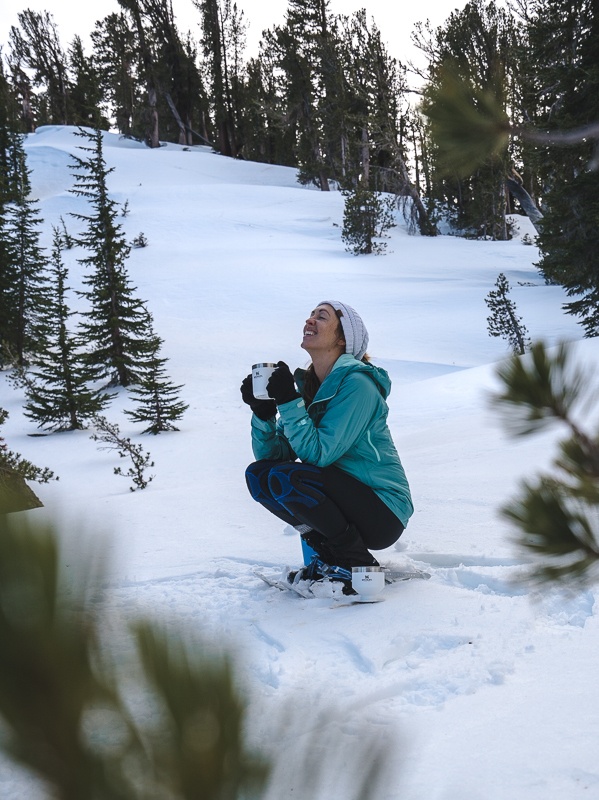
For the best combo of weight and temperature protection I tested the Adventure Stainless Steel Vacuum Bottle (pictured above) in Lake Tahoe with my early morning coffee brewed at home, which is about an hour’s drive from me.
The vacuum bottle was out in the frigid early morning hours and stayed hot until I finished it 4 hours later.
I love Stanley’s Classic Perfect Brew Pour-Over Set, too. It’s lightweight, and with a backpacking stove you can boil up water and have artisan hot coffee served up at your viewpoint of choice. Man, it’s luxurious after years of settling for instant coffee on the trail.
Best for Camping
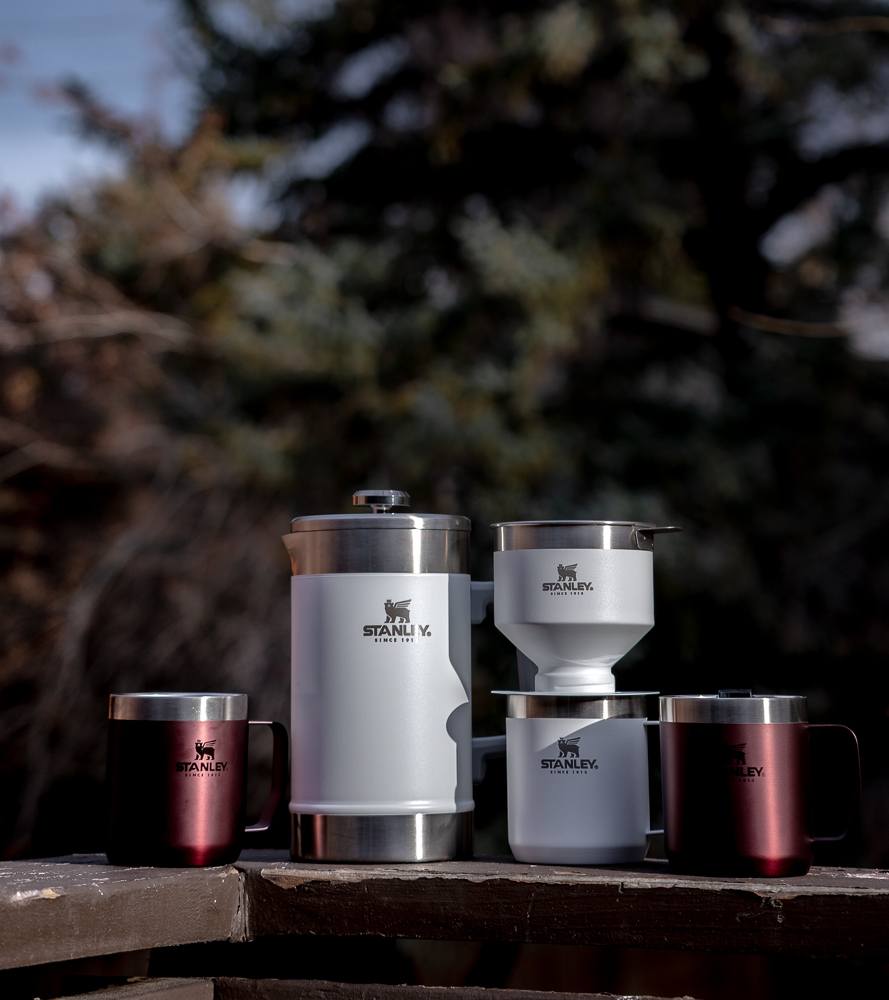
This is the french press I didn’t know I always needed. When I tested this one, after 2 hours in the cold the water temp was still 150°F, down 40 degrees from boiling.
It’s huge, with enough room for at least 4 people to have coffee (or two greedy coffee lovers like myself to have 3 cups each), meaning you don’t have to keep making more or worry about what you made going cold.
I tested the Classic Legendary Camp Mug temperature, too. This is just meant to keep drinks warm as you sip, but even after 2 hours outside in the cold, it was still hot (around 120°F).
I started using the french press and mug at home, too, because I’d previously had lukewarm coffee at some point in my morning and just suffered through it. It hasn’t been an issue since and now I’m kicking myself for not figuring out an insulated mug and french press before!
Best for Extreme Cold:
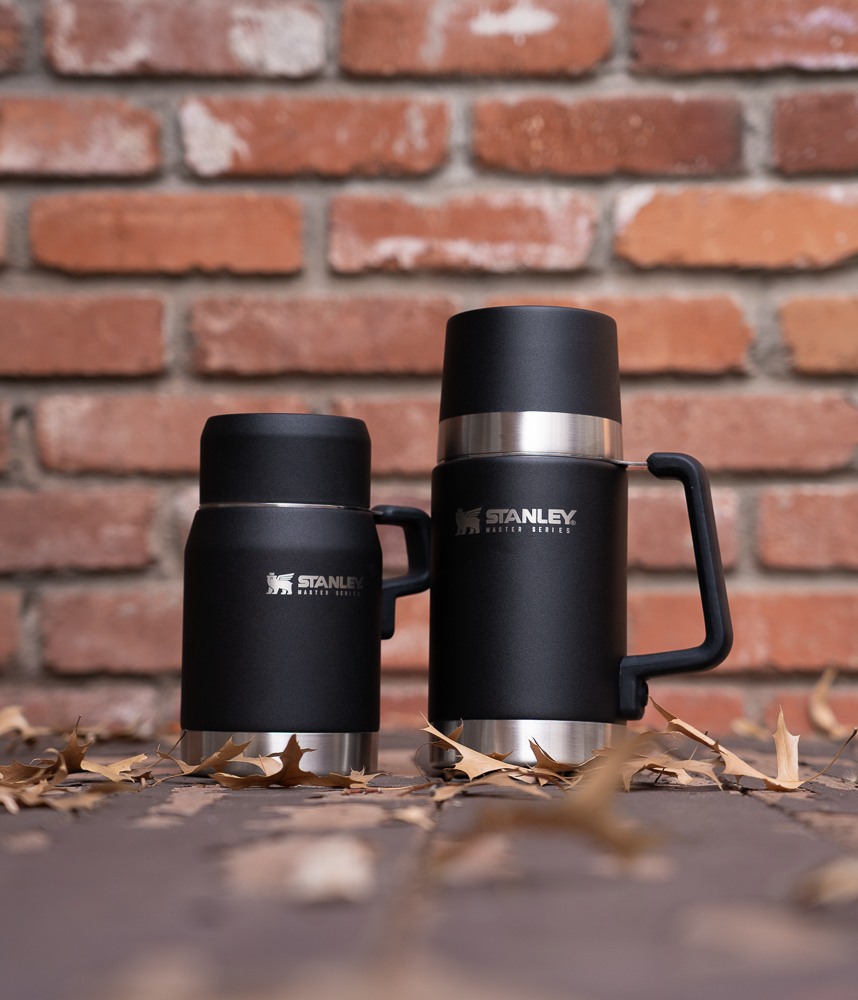
Finally we have the Master Unbreakable Thermal Bottle. This one can stay hot for 40 hours, and keep things cold for up to 6 days. This is perfect for overnighting in the winter, and keeping drinks cold on summer road and camping trips.
For funsies, I poured boiling water in and tested it for 24 hours in 20°F and it was still 130°F the next morning! True to the name, this is solid and can easily withstand drops.
These are all dishwasher safe as well.
Once you’ve got your drink and meal situation sorted, let’s keep your body comfortable:
Cover All Exposed Skin
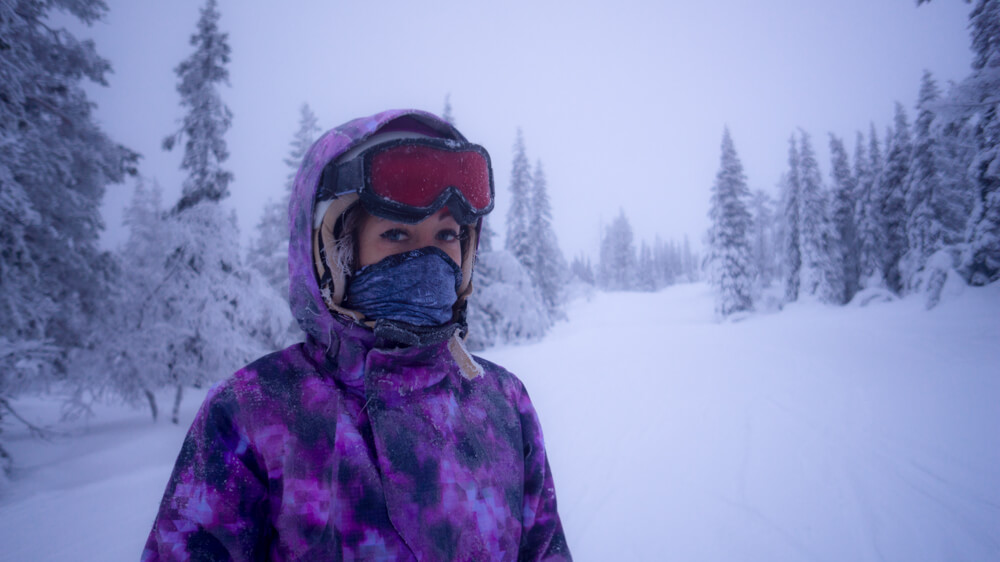
One of the biggest things I learned about recreating in winter is the importance of covering exposed skin before cold exposure. I tend to leave my gloves off until I feel that I really need them, and at that point, my fingers are already cold and without a chemical hand warmer, it’s hard to warm them back up.
Skip the potential pain and misery by covering up before you leave whatever warm situation you’re in, like a car or house, so that you retain that warmth from the moment you step outside.
Check for any areas that could be exposed if you were to bend over or sit down as well.
Layer, Layer, Layer
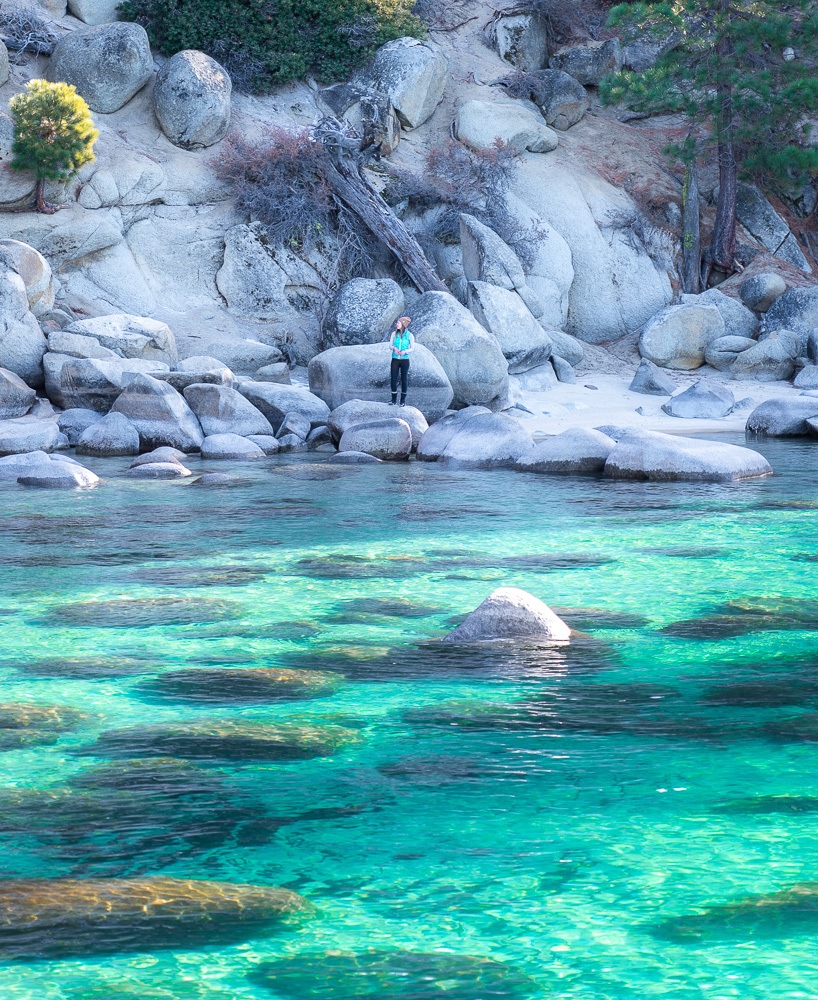
I’ve found that from freezing to -40, the same tactics more or less apply – you’ve got to layer. I have more tips here for what, specifically to layer depending on the conditions here.
Trust me, you’ll still get hot hiking in -25°C/-13°F, so being able to shed layers — and put them back on when you stop — are essential to winter happiness.
Make Sure Your Socks are Dry
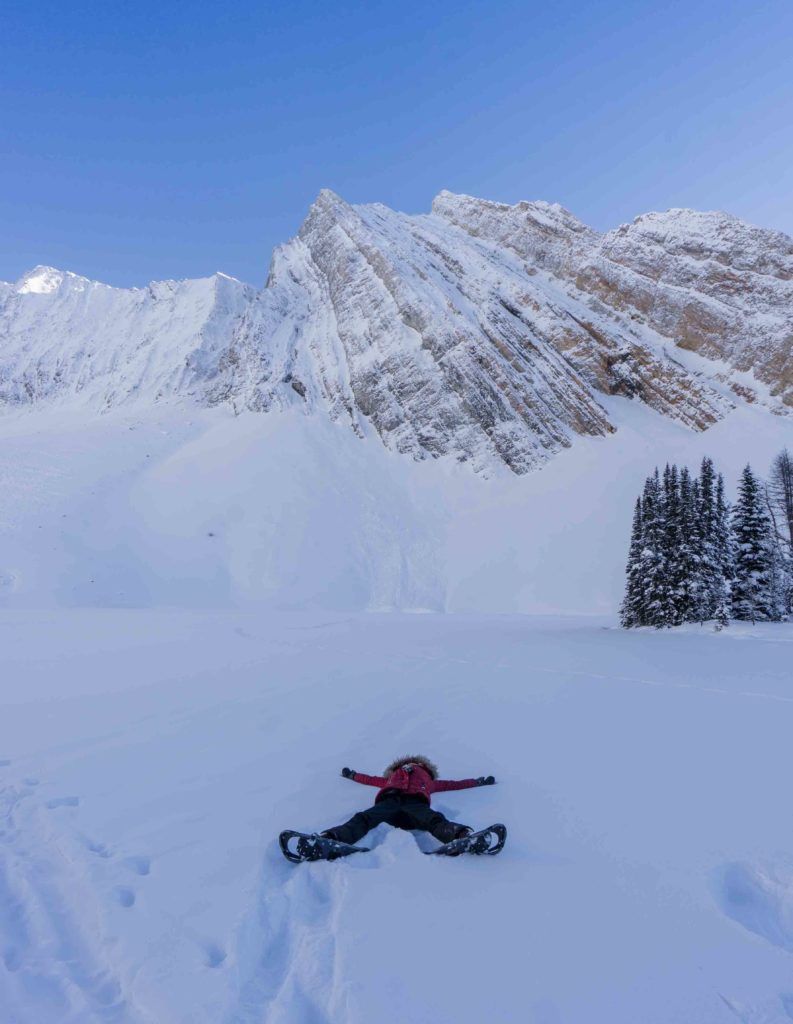
I learned when winter hiking in Alberta that despite it being crazy cold out, you’ve still got to make sure your socks are dry. I hadn’t realized that by driving with the heat on, I was causing my feet to sweat in my boots. It was so cold out that the sweat had frozen, causing my toes to go numb.
Thankfully I was near my car when my guide pointed this out to me, and was able to change my socks before we set out hiking. Check your socks! Start out with them totally dry when possible.
Consider Chemical Warmers
When it’s well below freezing, especially if it’s at night, I bring chemical hand warmers out with me. They’re often the difference between fingers and toes going numb in the glove and actually being able to take my hand out of my glove to handle the camera from time to time.
If I’m going to be out in -15°C/5°F or below, I use them in my boots and my gloves. They’re a game changer.
Move
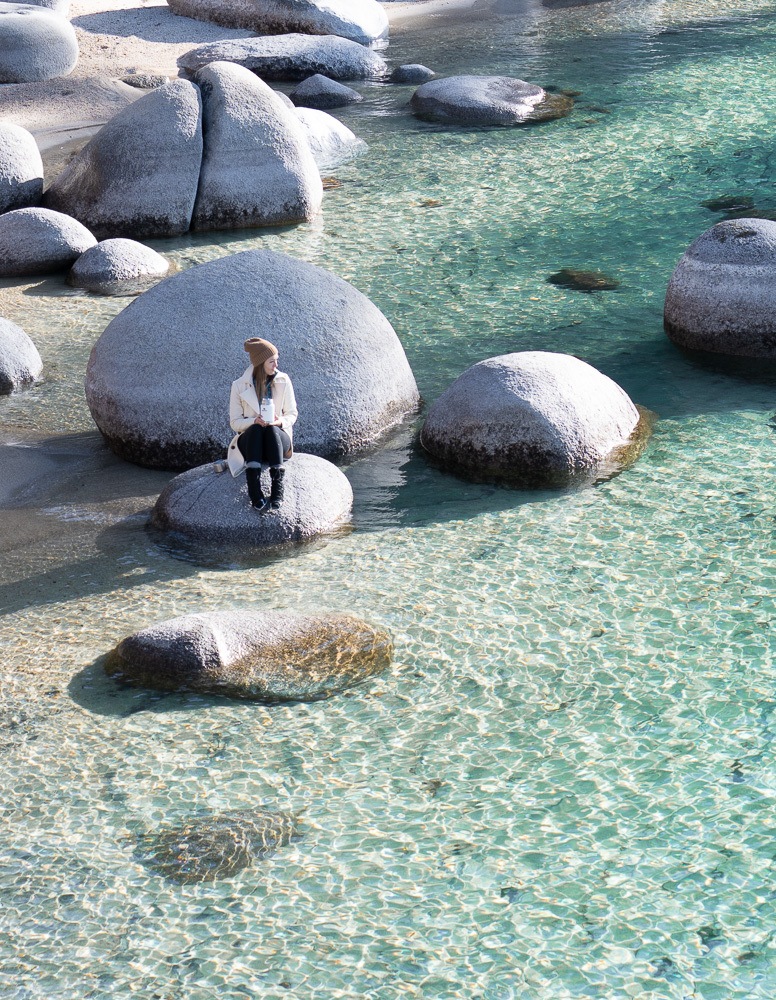
Finally, if you’re feeling cold, just move around! Part of the reason why I’m able to enjoy the outdoors so much is by staying curious about my surroundings and exploring as much as I can when I’m outside.
If you’re feeling cold sitting around camp or out chasing northern lights – move. It’ll make all the difference.
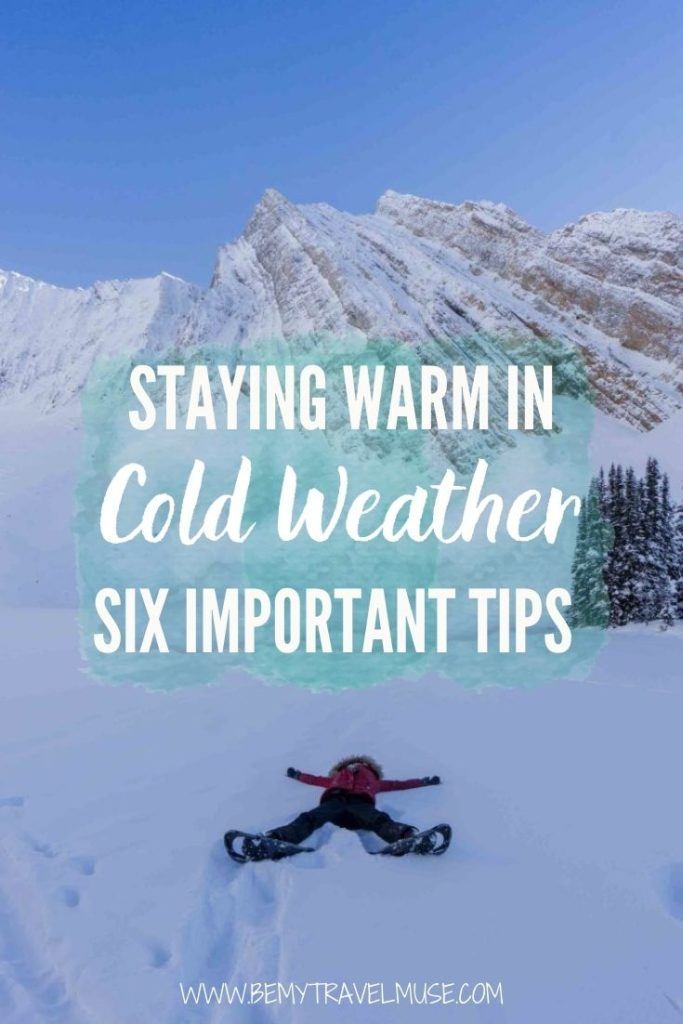
I don’t know about you, but I still want to be outside as much as possible in the winter. The outdoors are where I feel connected, calm, and love pursuing those endorphins. I’ve found there’s no reason why I can’t love the outdoors in the winter, and I hope this post helped you to feel that way, too.
Cyd says
It’s so cold where I am today, I love that these mugs keep things hot for so long! Which reminds me that I need to go make a cup of coffee…
Kristin says
I love them too! Enjoy the cup of joe 🙂